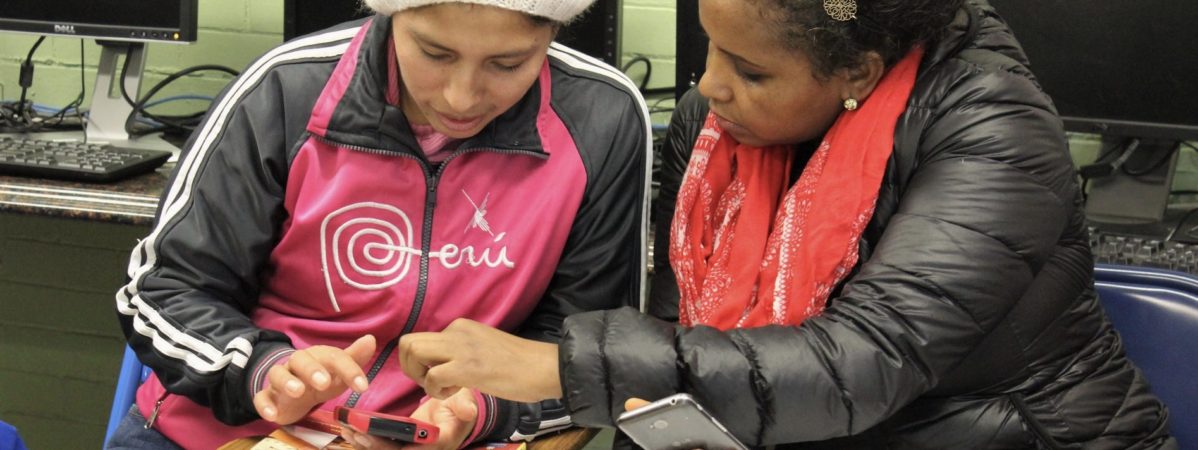
December 20, 2016 | By Digital Promise and Liza McFadden
Only 36 percent of our nation’s fourth-graders are proficient in reading.
This result earned the U.S. a ranking on reading achievement of only 17 out of 34 countries by the Program for International Student Assessment. Even though the U.S. spends more per student than other countries on K-12 education, that spending is not translating into better performance. Mounting data like this makes us question whether our children are receiving the education they need and deserve.
When confronted with such concerns, our immediate response as educators, researchers, and policymakers is often to assume the problems lie solely within the education system. But the challenges do not end – or even begin – in the classroom.
They begin in the home.
Former First Lady Barbara Bush, the founder of the Barbara Bush Foundation for Family Literacy, has long maintained that “the home is the child’s first school, and the parent is the child’s first teacher.” To ensure success for students in the classroom, we must equip their parents with the tools they need to support their children’s learning.
After nearly three decades of providing family literacy programs in which both parents and children work toward their educational goals, the Barbara Bush Foundation is intensely aware that learning is communal and intergenerational. It is this intergenerational impact that drives much of the work of Digital Promise’s Adult Learning Initiative. We know that, of the 36 million low-skilled adults in the U.S., many are parents who wish to provide a better life for their children. We also know that a mother’s reading ability is one of the greatest predictors of her child’s future academic success. Skills like maternal sensitivity, reading to a child, and parenting style are now estimated to account for nearly 40 percent of the income-related gaps in cognitive outcomes for children at age four.
Through our work at Digital Promise and the Barbara Bush Foundation, we have seen how a parent’s desire to provide a better life for their children can inspire them to overcome immense obstacles. In turn, we have seen the life-changing effects those efforts have on their children.
Technology can be a powerful tool for helping parents become confident first teachers for their children. In these two case studies, we explore technology’s impact by tracing the journeys of two family literacy programs as they used technology in transformative ways to meet their learners’ needs.
![]() Case Study #1: Briya Public Charter School, Washington, D.C.
Case Study #1: Briya Public Charter School, Washington, D.C.
Creating a digital literacy skills curriculum for a specific learner population
![]() Case Study #2: The Students and Parents in Cooperative Education (SPICE) Family Literacy Program, Central Maine
Case Study #2: The Students and Parents in Cooperative Education (SPICE) Family Literacy Program, Central Maine
Alleviating rural isolation with virtual learning
By Rastee Chaudhry and Barbara Pape
By Tamara Tate and Pati Ruiz